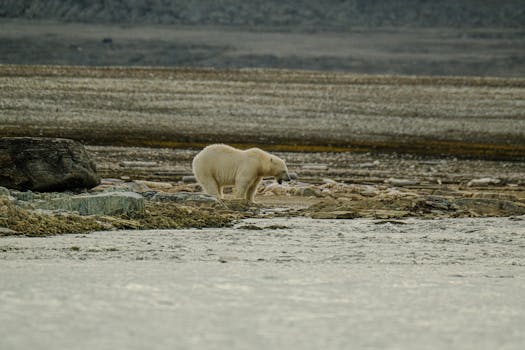
Climate change is one of the most pressing issues facing our planet today. Its impact on global ecosystems is profound and far-reaching. As temperatures rise and weather patterns become more unpredictable, ecosystems around the world are undergoing significant changes. This article examines the impact of climate change on global ecosystems, focusing on biodiversity, habitat loss, and the adaptation of species.
Understanding Climate Change
Climate change refers to long-term shifts in temperatures and weather patterns, primarily caused by human activities such as burning fossil fuels and deforestation. These activities release greenhouse gases into the atmosphere, which trap heat and lead to global warming. The effects of climate change are evident in rising sea levels, melting polar ice, and increased frequency of extreme weather events.
The Effects on Biodiversity
One of the most critical impacts of climate change is on biodiversity. Many species are struggling to adapt to the rapid changes in their environments. As temperatures rise, some species may migrate to cooler areas, while others may face extinction if they cannot adapt quickly enough. According to a study by the Intergovernmental Panel on Climate Change (IPCC), around one million species are at risk of extinction due to climate change and habitat loss.
Habitat Loss and Alteration
Climate change is also causing significant alterations to habitats. Ecosystems such as coral reefs, wetlands, and forests are particularly vulnerable. For example, coral reefs are experiencing bleaching due to increased sea temperatures and ocean acidification. These changes not only affect marine life but also the communities that rely on these ecosystems for their livelihoods.
The alteration of habitats leads to a decline in species that depend on specific environmental conditions. Forests, which serve as carbon sinks, are being affected by increased temperatures and pests, leading to forest dieback. This results in a loss of habitat for countless species and contributes to the acceleration of climate change.
Species Adaptation and Resilience
While many species are struggling, some are adapting to the changing climate. Evolutionary changes may occur over generations, allowing certain species to survive in altered habitats. For instance, some bird species are changing their migration patterns in response to earlier springs. However, the pace of climate change often outstrips the ability of species to adapt, leading to a decline in biodiversity.
Conclusion
The impact of climate change on global ecosystems is a complex and multifaceted issue that requires immediate attention. Protecting biodiversity and habitats is essential for maintaining the balance of our planet’s ecosystems. Efforts to mitigate climate change, such as reducing greenhouse gas emissions and conserving natural habitats, are crucial for safeguarding the future of our planet and all its inhabitants.



